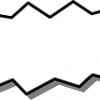.EDU LINKS?
I'm wondering if, while making an info-heavy blog, linking to sites like Wikipedia and, more specifically, chemwiki.ucdavis.edu, will negatively effect my Hubscore/GoogleLove?
I'm inclined to think it would be a good thing, but I just want to be sure.
Thanks in advance!edu links means that they are from an educational institution and will rarely have a negative effect. On the contrary if your article is about topics that these institutions cover/ deal in/are experts on they will more than likely positively affect your ranking
An .edu site, if it is relevant to your content, almost always has excellent domain authority which can be helpful.
In general, linking to authority sites (like quality .edu) is good for SEO. But honestly I do not know how hubpages treat it. I suppose they have no intelligent algo for measuring outbound links so I think they will count it as another link. So don't overuse it.
For google, I suppose it will be good and your profile subdomain will gain some strength with it."But how can I use to this to my SEO advantage? First of all, Wikipedia does not give out link juice – all of their links are nofollow. Secondly, they do not want you to add any links that you associate with in any way, so you can’t be obvious about it. Thirdly, your website can be added to a spam list if links to your website keep continually getting added to Wikipedia articles, so watch out for that. With all that in mind, it most definitely will be worth the trouble. Not only is it a trusted link in Google’s eyes, it is also a great source of traffic. " http://pointblankseo.com/wikipedia-seo-purposes
"Moral of the story: Wikipedia maybe won't send you directly great traffic, but to have a link in it gives authority to your site, therefore others will tend to cite your site and link to it." http://blog.hubspot.com/blog/tabid/6307 … uable.aspx
Need any more?????
I think he is asking to LINK TO wikipedia, not to get link FROM wikipedia. So I think linking to wikipedia or other relevant and authority sources is OK to do. If you think that is BIG NO please elaborate

No, thanks you very much! My question has been thoroughly answered

As far as Wikipedia, I tend to use it to link out at the first appearance of any word that I think general readers might need a definition of. For example, when I write about chemistry, I tend to link to the laws of thermodynamics on Wikipedia within the first few paragraphs, almost always.
I was just seeing how Hubpages specifically treats these links, but also was curious about Google info too, so thanks again everyone!Careful, your Hub could get unpublished for that.
The rule on HubPages is that every link must be completely relevant to the main subject of your Hub.
If you're using Wikipedia links to give definitions for random words, those links may not be directly relevant to your main subject.
I third the view that linking to Wikipedia can do more harm than good. I'm immediately suspicious of any article that refers to Wikipedia as an authority - any real expert on a subject would be able to offer far better references.
Anyway, there is nothing more annoying than reading a Hub which is a sea of distracting blue links.
Fyi: you can use Google Scholar to find relative research and link directly to that research item. They are almost always hosted on .edu sites or on sites that host peer reviewed journals with an ultra high domain authority. I've read that the higher up in the article you link to an authority website, the better Google likes it.
It is my understanding that we are not supposed to link to Wikipedia, as some information is not reliable.
HP likes Wikipedia so does Google. They consider this pile of whatever and authoritative site. Articles on there are written by anybody.
Yes, their works are not peer-reviewed and not always accurate -- I agree, based on professional experience and training in research, with not using Wikipedia links, but only some Wikimedia images/links, if they are definitely legally useable - Twice, I was notified that specific Wikimedia CC and public-domain images I used were actually copyrighted and the owners did not want them used. The owners were civil about it and, doing my own in-depth checking, found that the images were, in fact, copyrighted before the related Wikipedia articles were written by others.
I never use Wikipedia as any type of reference, because of the large errors I have found in their writings, but I do look at the references listed at the end of some of their articles; a few of these references have proven useful.If you fact check them beforehand they can be useful to link to in content farm pieces because they are generally written so laymen can understand them. It bypasses the need to explain the content of studies you link to.
I've found Wikipedia to be a goldmine, not so much for the actual entries but for the sources most entries have. I always seem to find at least something good at the bottom of the page on Wikipedia.It is more efficient to do my own research than to fact check Wikipedia articles at this time. I am satisfied that the site includes too much erroneous information to be useful, because out of three trials of 20 diverse articles each two years ago, I found 17 out of 20, 19 out of 20, and 18 out of 20 to contain substantial, numerous, and important errors. That was enough to be off putting and reason enough for me to not use the materials even today.
The references at the end of Wikipedia articles do often contain useful sources.
My experience has shown when too many links are made to the same site HP is unhappy regardless the quality.
I find information and make sure I double check it and don't use links for text info. It's great for photos once you get used to their format. Re edu sites, some won't link, but it's good to try anyway.
Recently, I have found Wikipedia to be my preferred site for information relative to current events. They seem to avoid the biased style of presentations we see on broadcast or cable news. Instead, they present links to those other sources at the bottom of their articles. That style comes across as much more fact-based, with sources referenced, than what we might see on the news.
That said, I'd probably seek out other sites to reference for academic topics.
If you are like me, you might wonder whether any of your past articles link to edu or Wikipedia sties. To find out, I ended up visiting google search, and doing a search on the phrase “Wikipedia site:fitnezzjim.hubpages.com”. In this case the search requests looks for the word wikipedia in my hubpages subdomain. The part that comes after the 'site:' keyword can designate any internet universal resource name you choose to search.Thank you for the information, Fitnezzjim; I'll look at Wikipedia concerning current events in the future.
Related Discussions
- 32
Auto-generated Links?
by EricDockett 3 years ago
I noticed what appears to be an automatically generated link in one of my Pethelpful articles. I didn't add it, and I can't get rid of it. I can't even see it in edit mode. Even if I delete the word, it just adds a new link at the next instance of that word.It links out to another Pethelful article...
- 213
Backlinks for $9.99 Is it worth it ?
by wytegarillaz 15 years ago
Has anyone paid for these backlinks at all and had benefits from them ?I keep seeing the advert so thought I would ask.Thanks
- 28
Optimizing Backlinks
by Brett A Rogers 11 years ago
This is how I understand backlinks. Linking to a webpage that links back to you is more valuable to SEO than not having it link back to you. The more removed this website is from your own the better. For example, linking from one of my hubs to a non-hubpages webpage is more...
- 21
HubPages + Squidoo = ????
by Michael J Rapp 13 years ago
I'd read a few people here mention that they write on other sites like Squidoo or Wizzley as well as HP. I'm curious about your philosophies as far as interlinking Hubs and Lenses, or other articles, and how to best build a network between several writing sites. I have a few different...
- 154
Negative SEO - A Reality
by Dorian Bodnariuc 8 years ago
"Paranoia" must think some of you, and honestly, I used to think the same. I didn't even believe that this was possible, even though Google mentioned that they have ways to detect link spamming. But the reality proved me I was wrong. My Traffic Is Constantly Going DownI did complain a...
- 52
How can we bring our Hubpages traffic back to what it was?
by Glenda Goddard 11 years ago
Is there a way to restore our traffic after this Panda update?




















